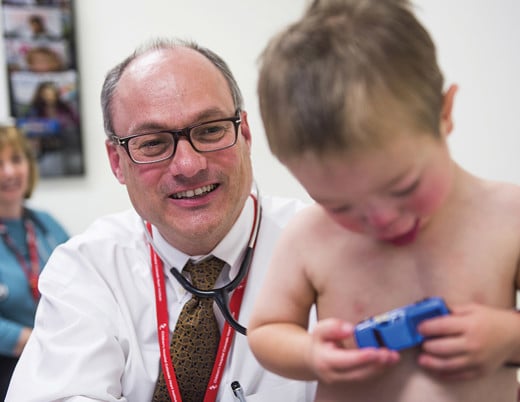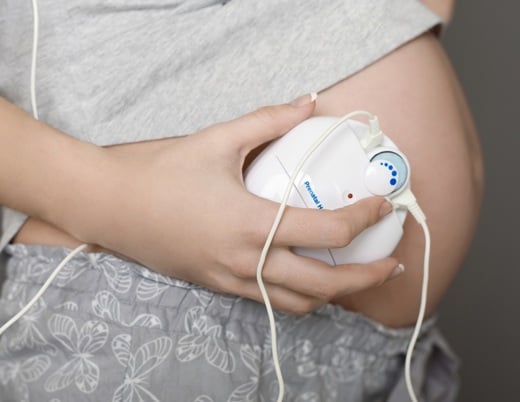Key takeaways
-
The statement guides physicians in the prevention and treatment of heart complications from COVID-19 in children and young adults.
-
Most infections are mild, but children with congenital heart disease can be at increased risk for severe COVID-19 depending on their underlying physiology.
-
MIS-C occurrence and treatments are described; vaccines significantly reduce risk of developing MIS-C.
Statement background
A new scientific statement from the American Heart Association (AHA) describes the discoveries about COVID-19 and cardiovascular indications and complications associated with the infection in children and young adults.
Shelley Miyamoto, MD, is chair of the AHA’s Council on Lifelong Congenital Heart Disease and Heart Health in the Young (Young Hearts) and has made significant contributions to pediatric cardiac research. She is also chair of Pediatric Cardiology at our Heart Institute, director of the Cardiomyopathy Program and Jack Cooper Millisor Chair in Pediatric Heart Disease at Children’s Colorado.
Severity of COVID-19 in children

Overall, children with infection have mild symptoms.
Reasons why children seem to experience less severe COVID-19 infection:
- Their cells have fewer receptors to attach to the SARS-CoV-2 virus.
- They may have a lower immune response due to a different cytokine response compared to adults and trained immunity from other vaccines and viral infections.
There appears to be an increased risk for severe COVID-19 in children with congenital heart disease who also have an underlying genetic syndrome (i.e., trisomy 21).
Antiviral treatments for children with COVID-19
Antiviral therapies are available for certain children:
- Remdesivir
- Currently the only FDA-approved antiviral
- Children 12 and older at risk for severe disease and need for supplemental oxygen
- Most effective if given as soon as possible once symptoms begin
- Dexamethasone
- Reduced risk of death in adults with severe COVID-19
- Suggested for children with severe disease who require breathing support
Cardiovascular complications and manifestations
Cardiovascular complications in children with COVID-19 are uncommon but can include:
- Cardiogenic shock
- Myocarditis
- Arrhythmias

MIS-C treatment
Children treated for MIS-C typically experienced recovery within 1 to 4 weeks of diagnosis. Therapy includes:
- Intravenous immunoglobulin (IVIG) administration
- Dual therapy of IVIG administration with infliximab or other immunomodulatory agents
Ream more about a 2021 Children’s Colorado-led study of treatment for MIS-C in children at high risk for poor cardiac outcomes referenced in the scientific statement.
The study found that patients treated with a dual therapy of IVIG and infliximab experienced better cardiac outcomes than those treated with IVIG alone, including:
- Less need for additional therapies
- Shorter stays in the intensive care unit
- Less likely to develop left ventricular dysfunction
- Inflammation resolved more quickly
These findings helped inform current medical literature about optimal MIS-C treatment.
Return to sports and physical activity
Research indicates children with mild or asymptomatic COVID-19 infection can safely return to sports once they recover from all symptoms. Children with a more serious infection or who developed MIS-C may consider select cardiovascular screenings before returning. These include:
- Echocardiogram
- Blood tests for heart enzyme levels
- Other heart function screening
Vaccination for COVID-19

The risk of heart inflammation after mRNA COVID-19 vaccines remains a concern. Research shows:
- Benefits outweigh the risk of potentially developing myocarditis
- For every 1 million doses of mRNA vaccines in 12- to 29-year-old males
- About 11,000 COVID-19 cases prevented
- About 560 hospitalizations prevented
- About 6 deaths prevented
- About 39 to 47 cases of myocarditis projected
- Viral infection is most common cause of myocarditis in children
- Before the pandemic, about 1 to 2 in every 100,000 U.S. children diagnosed with myocarditis each year
- Children more likely than adults to develop myocarditis due to viral infection
Myocarditis and any possible associations with mRNA COVID-19 vaccines are closely monitored by the Centers for Disease Control and Prevention.
More research is essential
Authors of the statement expressed the need for additional research for improving knowledge and identifying best treatment approaches, including:
- Mechanisms of COVID-19
- Long-term outcomes for COVID-19 and MIS-C
- Cardiovascular impact
- Vaccine-associated myocarditis
- Pediatric clinical trials for new antiviral therapies
- Health disparities
While there is much to learn about the pathology of COVID-19, there has been progress in the treatment and management of MIS-C in children. By outlining available treatments, clinical management, outcomes, possible preventive measures and identifying current gaps in research, the statement advances awareness and understanding of the short- and long-term impacts of COVID-19 in children.
Featured Researchers

Shelley Miyamoto, MD
Chair of Pediatric Cardiology, Co-Director of the Heart Institute
Children's Hospital Colorado
Section Head of Cardiology, Department of Pediatrics
Pediatric Cardiology
University of Colorado School of Medicine





 720-777-0123
720-777-0123










